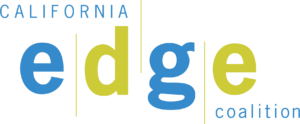Governor Gavin Newsom released his May Revision today, May 14th, proposing significant investments that seek to support workers, businesses, education and training programs, and undeserved communities.
Several budget items noted below are closely tied to EDGE’s policy priorities. EDGE applauds the Governor for proposing investments in these critical areas and looks forward to working with the Legislature and Administration to provide EDGE’s perspective to achieve shared goals.
As we work to provide a more in-depth analysis of the May Revision, below are a couple highlights of the budget proposal:
Community Colleges
• $3.6 billion investment for the Community Colleges (CC)
• Maintains students financial aid levels – No new dollars for Cal Grant program.
• Pays down CC deferrals
• CC Dreamer Resource Liaisons – An increase of $5.8 million ongoing Prop 98 to support immigrant students.
• An increase of $10 mil one-time Prop 98 for CC to develop work-based learning opportunities.
• Guided Pathways – an increase of $150 million one-time Prop 98 to support students seeking credentials.
• An increase of $50 million one-time Prop 98 to support grants for CCs to help transition back to in-person learning.
• $157 million one-time General Fund (GF) to foster new cooperative efforts between workforce programs and the CCs.
• An increase of $10 million one-time Prop 98 to pilot implementation of competency-based education.
Workforce Development
• $3.6 billion for workforce development funding.
• CC Strong Workforce Program – An increase of $12.4 million ongoing Prop 98 GF to increase program funding by 5%.
• $750 million one-time federal funds for the Community Economic Resilience Fund, to support regional and local planning and implementation of strategies to bolster workforce and economic recovery.
• $1 billion one-time investment of federal funds to the Student Aid Commission to support displaced workers seeking to reskill and up-skill, obtain educational opportunities, or to support start-up businesses.
• $250 million one-time GF set-aside for grants to award 5 to 8 regional collaboratives to align higher ed and workforce needs, modeled after the Fresno K-16 Collaborative.
• An increase of $20 million one-time Prop 98 to support CC participation in High Road Training Partnerships.
• $50 million one-time GF to support the Healthcare Workforce Training Program.
• Employment Training Panel (ETP) – $50 million one-time GF to support training opportunities for new and incumbent workers, and address skills gaps in disadvantaged regions, including the expansion to healthcare, tech, and manufacturing sectors.
• $115 million for High Road Training Partnerships that will upskill the current workforce while creating pathways for new hires and prioritize workers from disadvantaged communities, including justice-involved and disconnected youth.
• $20 million to develop apprenticeships in construction – in partnership between state and local workforce boards, the UC and CC, philanthropic organizations, and the housing industry.
• $42 million GF to the ETP to leverage existing community college contract education units to provide small businesses with new and incumbent employee training and accelerate their recovery.
• $50 million one-time General Fund to the Workforce Board to fund regional equity and recovery partnerships between regional community college consortia and regionally organized workforce boards.
• $2.5 billion relief for small businesses, with an additional $1.5 billion in federal funds.
Social Safety Net
• An increase of $30 million ongoing Prop 98 for CCs to establish basic needs centers to support students.
• Medi-Cal access for older undocumented adults.
• Golden State Stimulus Part 2 – $600 direct payments to Californians, including $500 payments for undocumented families.
• An additional $83 million for childcare services.
• $35 million GF over 5 years for Universal Basic Income pilot programs to support low-income Californians.
Broadband for All
• $7 billion investment (over 3 years) to expand broadband infrastructure and enhance internet access.
